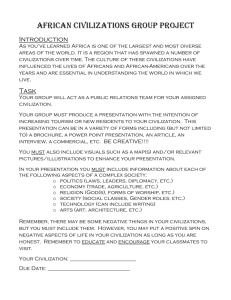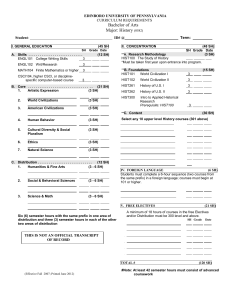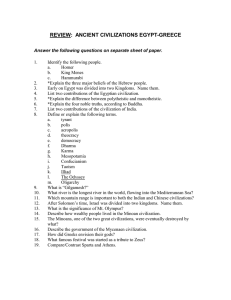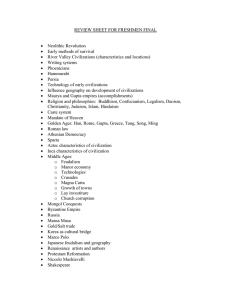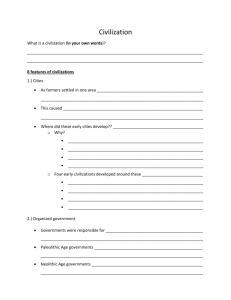World History Text World History J. J. Spielvogel, 2003
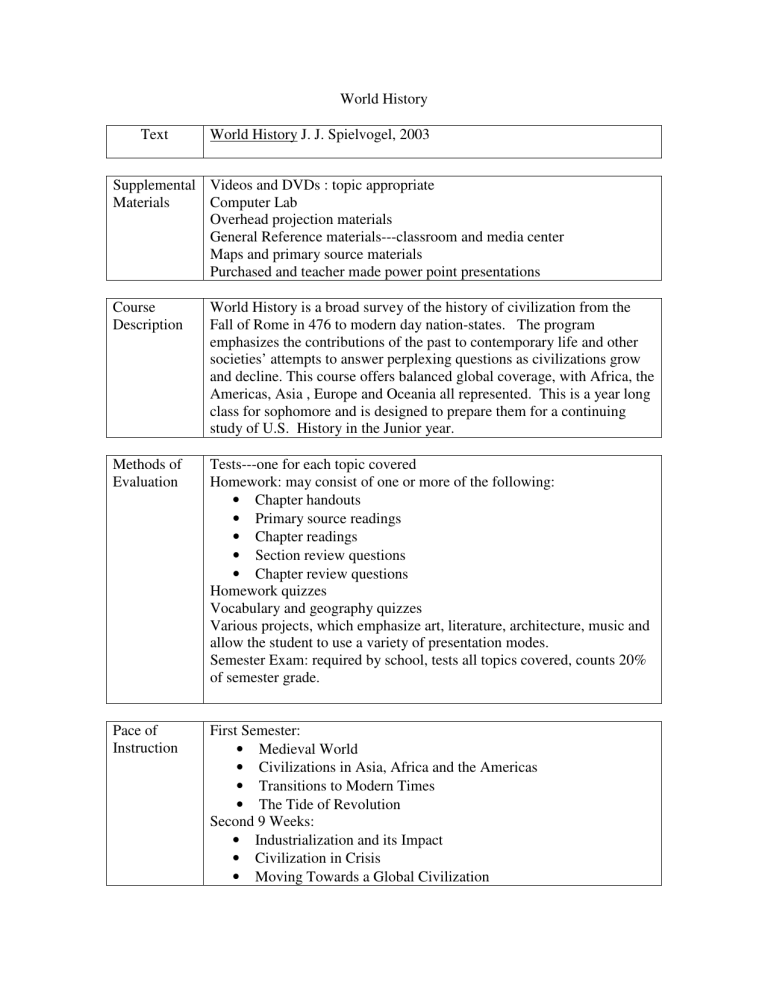
Text
World History
World History J. J. Spielvogel, 2003
Supplemental
Materials
Videos and DVDs : topic appropriate
Computer Lab
Overhead projection materials
General Reference materials---classroom and media center
Maps and primary source materials
Purchased and teacher made power point presentations
Course
Description
World History is a broad survey of the history of civilization from the
Fall of Rome in 476 to modern day nation-states. The program emphasizes the contributions of the past to contemporary life and other societies’ attempts to answer perplexing questions as civilizations grow and decline. This course offers balanced global coverage, with Africa, the
Americas, Asia , Europe and Oceania all represented. This is a year long class for sophomore and is designed to prepare them for a continuing study of U.S. History in the Junior year.
Methods of
Evaluation
Tests---one for each topic covered
Homework: may consist of one or more of the following:
• Chapter handouts
• Primary source readings
• Chapter readings
• Section review questions
• Chapter review questions
Homework quizzes
Vocabulary and geography quizzes
Various projects, which emphasize art, literature, architecture, music and allow the student to use a variety of presentation modes.
Semester Exam: required by school, tests all topics covered, counts 20% of semester grade.
Pace of
Instruction
First Semester:
• Medieval World
• Civilizations in Asia, Africa and the Americas
• Transitions to Modern Times
• The Tide of Revolution
Second 9 Weeks:
• Industrialization and its Impact
• Civilization in Crisis
• Moving Towards a Global Civilization
Course objectives
At the end of this course students should have developed:
• A basic understanding of the development of civilizations and the political, economic and social forces, which work to effect change.
• A basic understanding and an appreciation of man’s cultural development in the fields of the arts, literature, music, religion and philosophy
• A basic awareness of geographic influences on the development of cultures.
• Skills necessary to engage in effective historical research in order to support written or stated views.
• Skills necessary to explore interpretations of history and change through the development of institutions.
• Skills necessary to evaluate the growth and decline of civilizations, changing concepts or right and wrong, heroism, relationships between religion and state and conflicts between social and economic classes.
• Skills designed to improve: reading habits, comprehension, critical thinking habits, historical research skills, listening and note taking, essay writing and study habits.
• Skills needed to interpret charts, maps, graphs and other media
• A basic understanding of the contributions of the institutions of the Feudal Age in the building of new structure of life that filled the void left by Rome
• To assess the role of the European, African, Asian and American nation-states in the continued development of modern society
• To analyze the roles played by the peoples of all the studied civilizations in the advancement of ideas in personal freedom, equality, human dignity and government by consent.
• To analyze the contributions of all the studied civilizations in the fields of art, literature, music, science, medicine, geography, mathematics, philosophy and other areas to modern civilization
• To analyze the role of the five major world religions: Hinduism,
Buddhism, Judaism, Christianity and Islam, to the development of modern world cultures.
